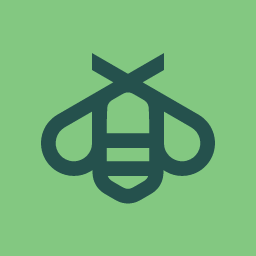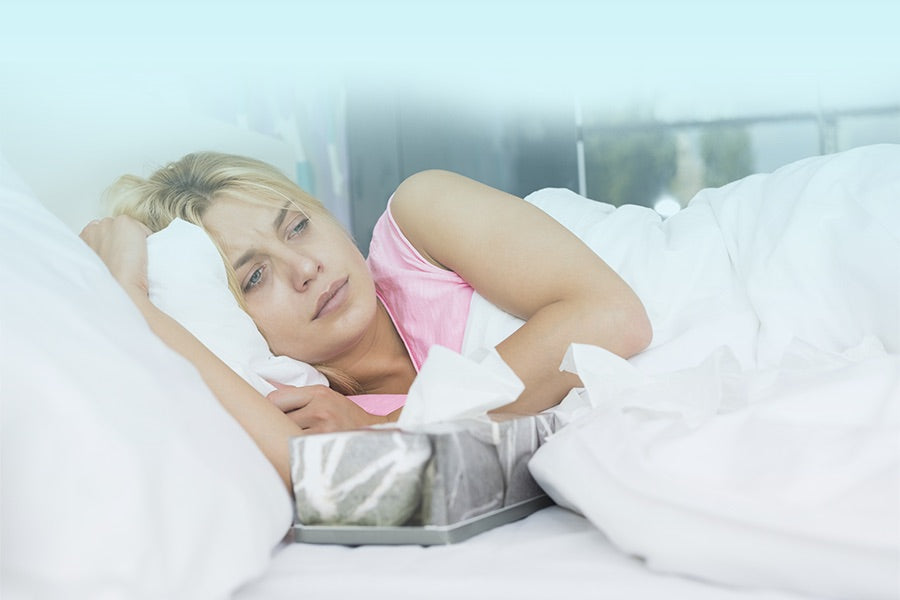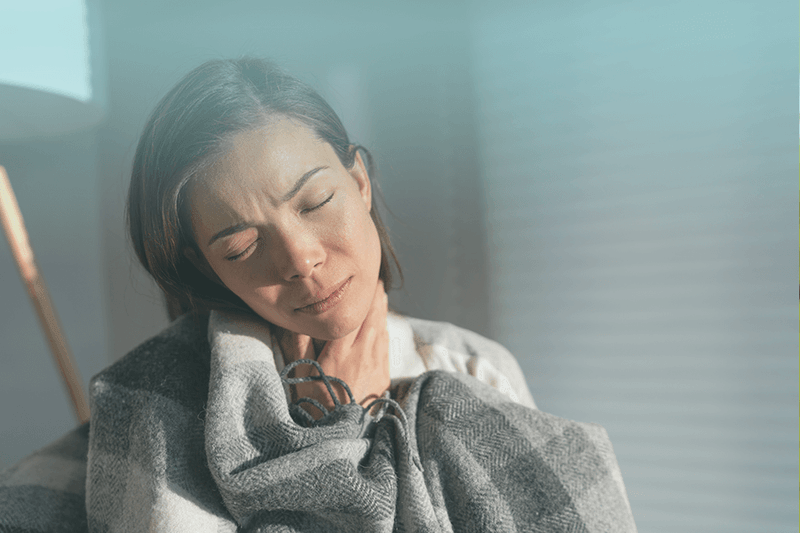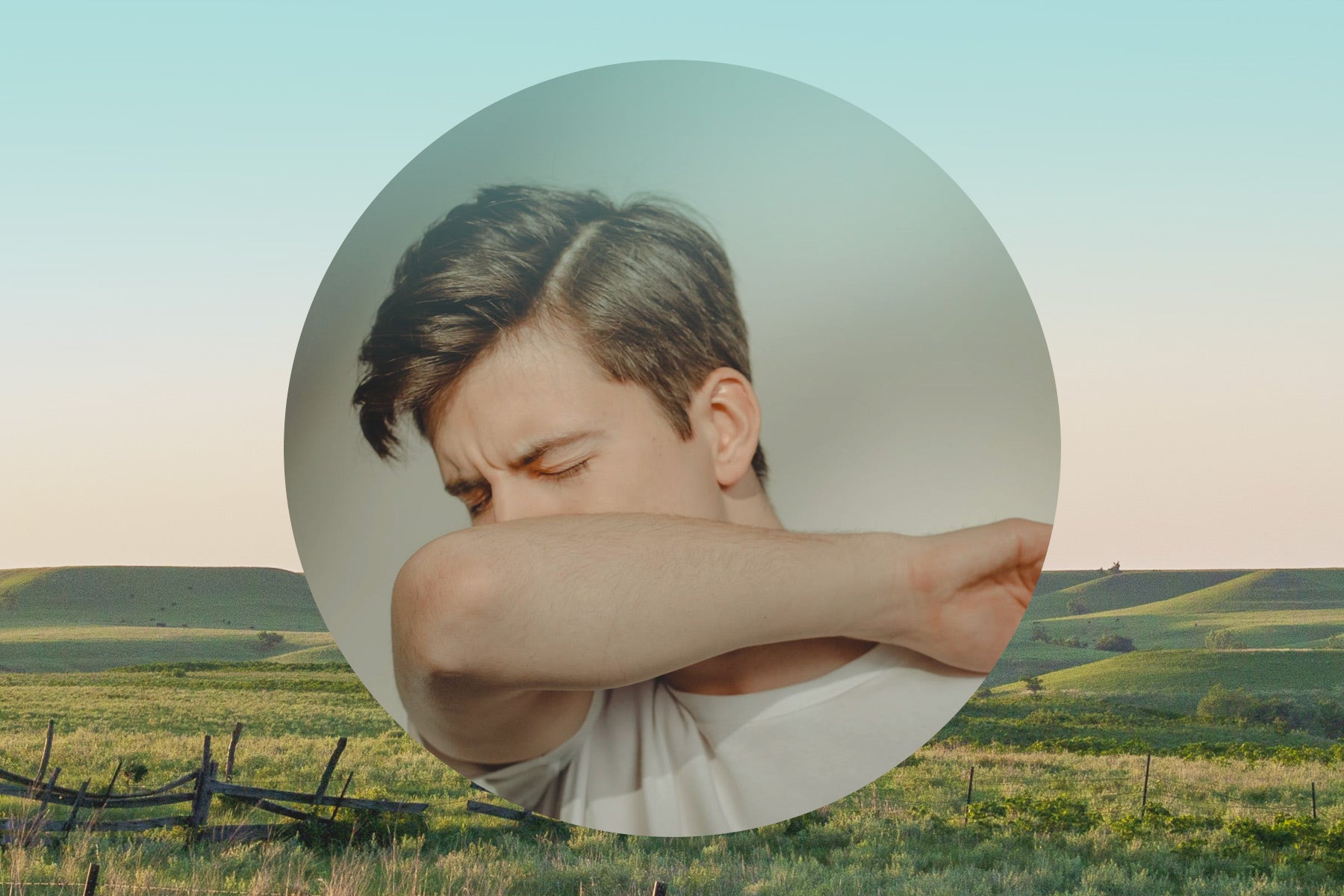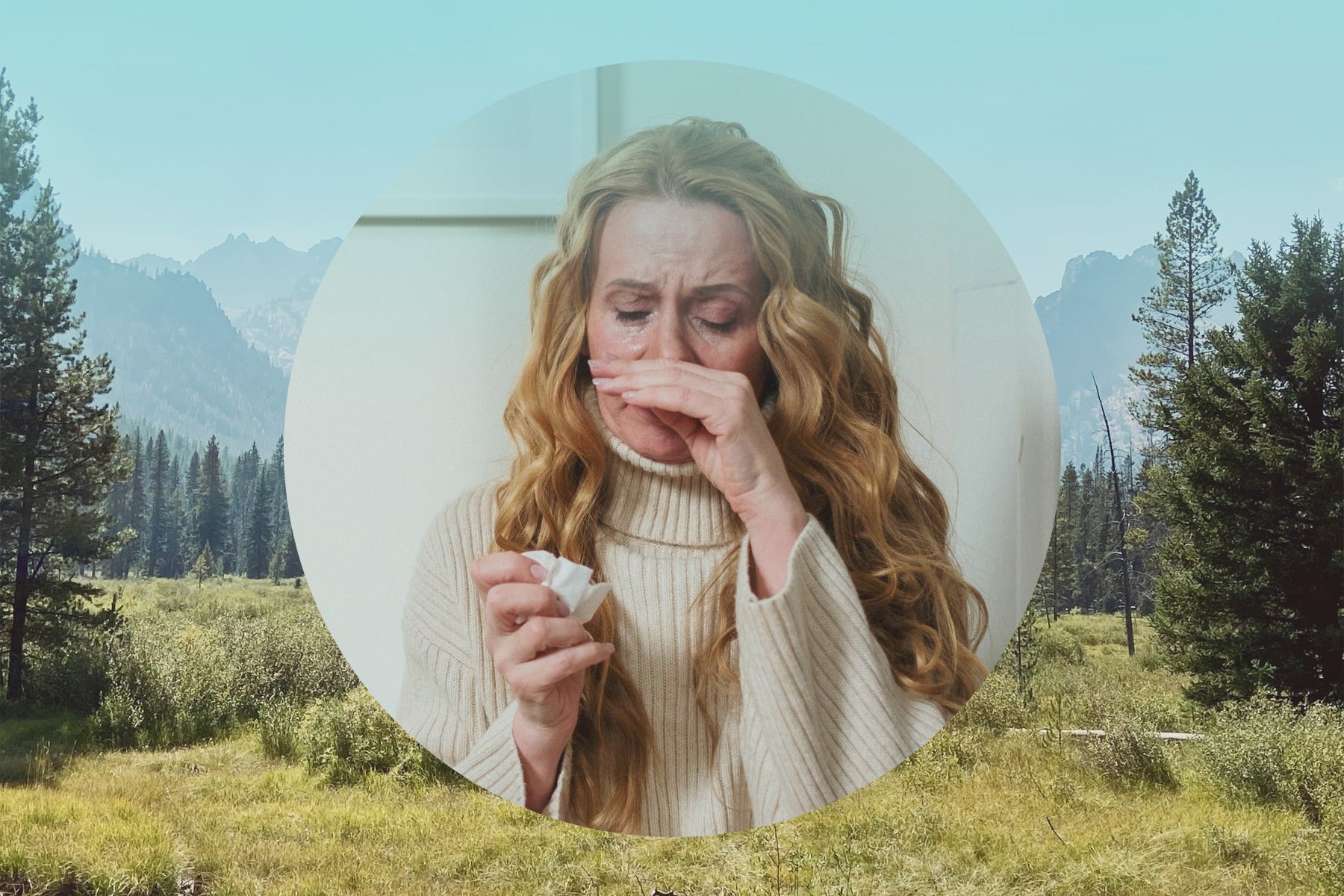
Are You Concerned About Pollen Allergies in Dallas?
Ranked among the very worst cities in the country for pollen allergies, Dallas, Texas, presents many unique challenges to seasonal sufferers. Tired of those lingering symptoms? Learn what you can do to regain your health and well-being today.
Tracking Pollen Allergies in Dallas, TX
When it comes to seasonal pollen allergies in Dallas, you want answers. What triggers them? When could they be at their worst? When will they be at their best? How do you treat them? The true answer is, it varies greatly. Depending on your location, your immune system, and the environmental factors impacting your area, your pollen allergies in Dallas may fluctuate significantly.
Around Dallas, especially, dramatic shifts in the humidity and wind can occur day to day. When humidity is lower and the air dry, it’s easy for winds to spread pollen far and wide. These winds may carry pollen from mountain cedars for hundreds of miles, triggering the infamous “cedar fever” symptoms more common in Central Texas.

Severity and Duration of Pollen Allergies in Dallas
Ranked the second worst city in the country for allergy sufferers, the bustling metropolis of Dallas, Texas, can be a pollen nightmare. But what does this mean, exactly? Well, for starters, it signifies that seasonal allergens, such as tree, weed, and grass pollen, remain at problematic levels for millions of people. It also means that there are certain shortages in necessary services, products, and professionals.
Dallas Seasonal Allergy Sufferers Beware!
Let’s take a closer look at the ranking provided by the Asthma and Allergy Foundation of America (AAFA). According to the AAFA, Dallas ranks #2 for tree pollen, #4 for grass pollen, and #26 for weed pollen among the worst cities in the U.S.
The AAFA also found that in 2022, Dallas scored the highest for its sum of “high” and “very high” tree pollen days. The northern Texas city also showed tree pollen as early as December, with peak levels in March and April. Overall, Dallas was rated “Worse Than Average” in total pollen, “Worse Than Average” in over-the-counter medication use, and “Average” in access to board-certified specialists.
If you experience - or expect to experience - pollen allergies in Dallas, consult a medical provider for a tailored action plan for your symptoms.
Know the Seasons That Affect YOU
Typically, the end of December to the end of February usher in pollen allergies to trees. This is when mountain cedar trees release their grains, triggering “cedar fever” in many residents. From late February to the beginning of April, springtime oak and walnut trees pollinate, while grass allergens accumulate from April to late June.
Fortunately, the end of June to the end of August may offer respite for seasonal allergy sufferers, but this period soon ends as ragweed and cedar elm incite allergies from September to the beginning of November.
As always, it’s important to consult a medical expert about your pollen allergies in Dallas. A seasoned (pun intended) professional can help you manage your symptoms throughout.
Where Do Pollen Allergies in Dallas Come From?
Although the timing of pollen production varies by season and month, all of these plants produce for the same reason: reproduction. So-called pollen grains are typically produced in either cone-like structures or structures in flowering plants called anthers. When released, these pollen grains can travel far and wide throughout Texas, fertilizing similar species of plants and causing your pesky pollen allergies!
Top Allergens in the Dallas-Fort Worth Metroplex
It’s always nice to be able to put a face to a name, isn’t it? Well, that should be no different with your allergies!
Want to know which pesky trees, weeds, and grasses are causing your pollen allergies in Dallas? With an at-home allergy test, you can determine the precise allergen triggering your reactions.
If you’re still wondering what’s behind seasonal fluctuations in your symptoms, or what you should generally look out for in and around Dallas, look no further!
According to the USDA Plants Database, here are some of the most allergenic trees, weeds, and grasses in the area:
<style>
.my-class {
overflow: auto;
width: 100%;
}
.my-class table {
border: 1px solid #DEDEDF;
height: 100%;
width: 100%;
table-layout: fixed;
border-collapse: collapse;
border-spacing: 1px;
text-align: left;
}
.my-class caption {
caption-side: top;
text-align: left;
}
.my-class th {
border: 1px solid #DEDEDF;
background-color: #ECEFF1;
color: #000000;
padding: 5px;
}
.my-class td {
border: 1px solid #DEDEDF;
background-color: #FFFFFF;
color: #000000;
padding: 5px;
vertical-align: top;
}
</style>
<div class="my-class" role="region" tabindex="0">
<table>
<thead>
<tr>
<th><b>Trees</b></th>
<th><b>Grasses</b></th>
<th><b>Weeds</b></th>
</tr>
</thead>
<tbody>
<tr>
<td><ul><li>Red/Green Ash</li><li>Bur & Post Oak</li><li>Red Cedar</li><li>Eastern Cottonwood</li><li>Black Willow</li><li>Cedar Elm</li><li>Pecan</li><li>Red Mulberry</li><li>Hackberry</li></ul>
</td>
<td><ul><li>Johnson</li><li>Bermuda</li><li>Perennial Rye Grass</li></ul>
</td>
<td><ul><li>Giant Ragweed</li><li>Western Ragweed</li><li>Baccharis</li><li>Marsh Elder<li>Prairie Sage</li><li>Lamb's Quarter</li></ul>
</td>
</tr>
<tbody>
</table>
As you can see, there are a variety of plant species that can impact your pollen allergies in Dallas. From the bushes and grasses at your feet to the sprawling canopies above, allergens around Dallas are everywhere!
If you find yourself struggling with seasonal allergies, you’re far from alone. Depending on immunological sensitivities, weather patterns, and changing climate trends, you may experience a full spectrum of symptoms. Likewise, you may experience very few, if any, symptoms. Feel free to consult a specialist about the precise allergens affecting you.
How Dallas Pollen Causes Your Allergies
You may be wondering why some people seem invulnerable to allergies while others are stricken season after season, almost like clockwork. If you find yourself scratching your head (or skin) over the massive variation in seasonal pollen allergies, don’t fret!
There are many reasons that pollen allergies in Dallas are terrible for some and benign for others. Changing weather patterns, such as pressure shifts, heavy winds, and pollen-rupturing rains may all exacerbate your symptoms.
At the end of the day, your exposure and your vulnerability are two of the biggest risk factors.
You Can Thank Your Immune System!
In a nutshell, seasonal pollen allergies come from your body’s overreaction to pollen. Typically, your immune system responds to foreign substances and ‘invaders’ by rallying its defenses. When pollen allergies are triggered, your immune system is also responding - except, in this case, it’s going a little overboard!
Through this reaction, your body experiences symptoms that signify your immune system is fighting the pollen. If your allergies become severe, this may be a sign that your immune system is going into overdrive unnecessarily. As always, speak to your healthcare provider for personalized diagnoses and treatments.
Ways To Treat Your Seasonal Pollen Allergies
You’ll be happy to know that there are many ways to potentially prevent and treat your seasonal pollen allergies in Dallas, TX. Perhaps, then, it’s no wonder that research puts the annual cost of nasal allergies alone at nearly $4 billion.
Whether you’re experiencing serious congestion and allergy fatigue, or just can’t shake that scratchy throat and runny nose, you may need a little therapeutic help!
Let’s explore some possible prevention and treatment options, from everyday habits to natural remedies that may be useful. As always, speak with an allergist or immunologist for personalized treatment options, especially if you have severe and recurring pollen allergies.
How To Potentially Prevent Dallas Pollen Allergies
You’ve heard the typical lifestyle tips. Don’t go out on high-pollen days. Practice good hygiene. Clean your home regularly. Clean your car. Replace your air filter. Avoid keeping the windows open when heavy pollen counts are circulating.
While all of these strategies are good, you may be missing critical elements of each.
These include:
- Using Certified Filters - You’ve probably heard about using air conditioning units and filters, but did you know there are actual cleaners that are CERTIFIED asthma & allergy friendly®? Alternatively, you can use a high-efficiency particulate absorbing (HEPA) filter to reduce pollen in your home.
- Using Medication Preemptively - Many people wait till their symptoms are bothering them before they run to the pharmacy or drugstore. However, what they should consider is taking the treatment before allergies begin. According to medical experts, using treatments prophylactically can help prevent the release of chemicals like histamines that cause your symptoms. As always, speak to your physician first.
- Covering Your Head and Eyes - When you go out - especially on those nasty pollen days - consider wearing sunglasses and a hat. This simple measure can keep pollen grains from getting in your eyes and accumulating on your scalp. If you have long, thick hair, it’s especially important to guard your hair from circulating pollen grains.
- Showering Before Bedtime - It’s a good idea to shower yourself before getting in bed because this prevents you from tracking pollen where you sleep. Similarly, make sure to wash your bedding in hot water with plenty of soap. Do this weekly, and always remember to change and wash clothes when you’ve been outside in pollen-heavy areas.
Speaking of clothes, if you’re using a dryer line instead of a machine dryer, make sure you’re doing it inside as opposed to outside!
- Minding Your Best Friend - They say a dog is a man’s best friend, but even a good friend can cause some mischief once and a while! Not only do your pets shed dander, a well-known perennial allergen, but they also track in pollen and other irritants from outside. Be sure to limit your exposure, or, if you just love rolling around with your furry one, wash and bathe your pet regularly.
Now that we’ve discussed some of the steps you can take to limit your exposure and reduce your pollen allergies in Dallas, let’s look at some remedies, treatments, and medications that may help if your symptoms still flare up.
How to Treat Allergic Reactions to Seasonal Pollen
Your immune system is an infinitely complex specimen, constantly changing ever slightly based on the interplay of your environment and genetics. While some medications may bolster your immune system or reduce your allergies, others may do nothing at all. In some cases, you may even experience side effects from the meds that are worse than your allergies!
Consult your healthcare provider about exploring the following treatment options:
- Nasal sprays: With minimal side effects, nose sprays are known to be effective in treating swelling and inflammation of the nasal passages. Common brands include FLONASE and Nasacort.
- Nasal rinsing: Sometimes, all you need is a little salt water! Whether you make your own saline, spend some time in the ocean, or purchase saline, you may be able to reduce that nasty mucus buildup and clear pollen from your nose. For the best results, follow the directions on your bottle.
- Eye drops: Tired of those red, watery, and/or itchy eyes? Eye drops may alleviate all of these symptoms by blocking the release of histamine and temporarily relieving dryness and irritation. Just be wary, the effects can be very short-lived.
- Decongestant Meds: Need to clear out your nose and get rid of all that pressure in your sinuses? Turns out, decongestants such as SUDAFED and Afrin may be able to help. These decongestants work by constricting the lining of your nasal passage to open up some room for breathing.
In some cases, you may experience unwanted side effects from decongestants, especially if you have hypertension. Speak to a medical professional first.
- Antihistamine Meds: Antihistamines are vital in thwarting the release of a major cause of your symptoms, histamine. By blocking this chemical reaction, antihistamines can reduce many symptoms, from sneezing to itching, congestion, and runny nose. You can take antihistamines as pills, sprays, or liquids.
Just be mindful of the drowsiness effect. ZYRTEC and Claritin may be two options right for you.
Overall, these medications are just part of a whole range of treatments you can try in treating your pollen allergies in Dallas. Some people use naturopathic remedies, others increase their vitamin supplementation, and certain people even use water devices.
While some of these remedies may be beneficial, you should always consult a medical expert before attempting a DIY treatment plan. Not only can an immunologist help you determine the source of your Dallas allergies, but he or she can also provide a personalized protocol that treats your sensitivities.
Remember: Pollen Allergies in Dallas Can Occur Year-Round
Now, this may come as a slight surprise. After all, aren’t year-round or perennial allergies from things like dust, mold, and pet dander? While the answer is yes, remember the cycles of pollen allergy seasons. In Dallas, you can experience tree pollen as early as December all the way till May. By April, grass allergies can kick in and last through June. Finally, good ol’ weed allergens start circulating in July and typically peter out in November.
So basically, that’s all year! Now, that’s not to say you will experience issues that long. Many people are seasonal pollen allergy sufferers, with susceptibilities to certain types of pollen, such as ragweed or Juniper trees. Other people may be less fortunate and have allergic reactions to all the major pollen. Some people, by contrast, are largely asymptomatic through all seasons!
By applying the aforementioned prevention tactics and treatment measures, you may be able to alleviate some or most of your symptoms.
Alternatively, you can opt for a treatment plan that focuses on long-term immunotherapy. Through allergy drops, you may potentially treat your allergies at the source, changing your immune system’s response to specific allergens, or antigens.
Explore A New Avenue for Symptom Relief
If you’re sick and tired of lingering symptoms, short-term relief, and disruptions in your daily life, things can change. Consider the role of sublingual immunotherapy in not just treating your symptoms, but changing your immune system overall.
At Quello, we make it easy. With a FREE at-home allergy test, you can provide a sample to our lab. Our specialists can then pinpoint the precise allergen(s) affecting you and formulate the tailored allergy drops you need.
Note: Allergy drops may not work for everyone. While some research supports the efficacy of sublingual immunotherapy, you should always speak with your personal healthcare practitioner first.

FAQ
How Bad Is Dallas For Pollen Allergies?
While seasonal allergies vary significantly from person to person, the city of Dallas does rank near the very top of the worst cities for pollen allergy sufferers. Individuals with severe tree allergies may have a particularly difficult time.
When Are Pollen Allergies in Dallas The Worst?
Again, it all depends on unique sensitivities, weather patterns, seasons, and other exposure risks. That said, you can expect the winter months of December and January, springtime in May, and early autumn in September to be the worst periods for pollen allergies.
Do DIY Allergy Tests Detect Fall Allergens?
At Quello, our at-home test kits can detect pollen from trees, grasses, and weeds, as well as perennial allergens such as mold, cockroaches, pet dander, horses, and dust mites.
Can Allergy Drops Eliminate Pollen Allergies in Dallas?
While there are no cure-alls in immunology, sublingual drops may be effective for some users. In some cases, patients may enjoy symptom-free living after years of using allergy drops. Email or call a specialist today.
Overcome your allergies at home with our doctor-led therapy.
Get started with our free allergy test kitGet Started with no test needed.
Overcome your allergies at home with our doctor-led therapy.
Get started with our free allergy test kitGet Started with no test needed.
